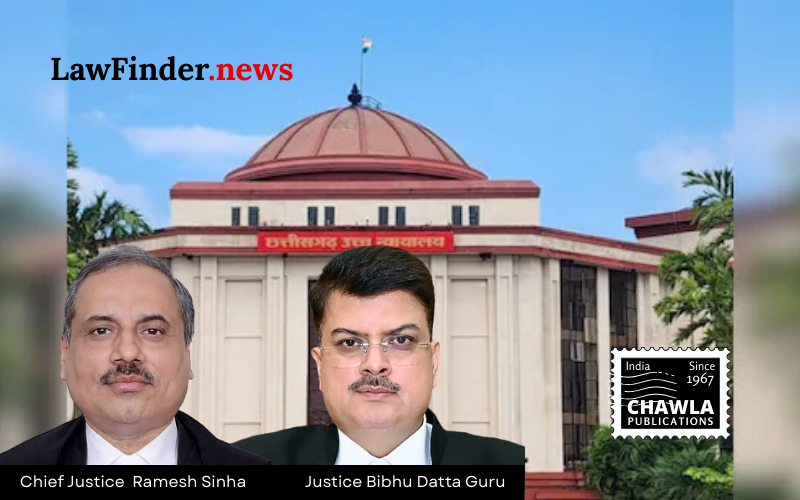Appellate Court Affirms Trial Court's Decision, Citing Lack of Compelling Circumstantial Evidence
The Chhattisgarh High Court, in a significant judgment dated October 9, 2025, upheld the acquittal of several accused in a high-profile murder case that dates back to 1997. The case, involving the alleged murder of Parameshwar Rao, a Munim at Laxmi Traders in Jagdalpur, was characterized by circumstantial evidence and procedural intricacies. Presiding over the appeal, Chief Justice Ramesh Sinha and Justice Bibhu Datta Guru dismissed the state's appeal against the acquittal, reinforcing the trial court's decision and emphasizing the absence of a complete chain of circumstantial evidence that could conclusively establish the guilt of the accused.
The State of Chhattisgarh, represented by Deputy Advocate General Mr. Shashank Thakur, challenged the trial court's judgment from April 10, 2003, which acquitted Deepak Phabyani and other co-accused under Sections 302, 120-B, 404, and 201 of the Indian Penal Code, citing benefit of the doubt. The prosecution's case hinged on a complex web of circumstantial evidence, including the recovery of the deceased's body, alleged financial transactions, and the destruction of evidence by the accused.
The prosecution argued that the trial court had erred in its evaluation of evidence, particularly regarding the circumstantial evidence and the testimonies of key witnesses like Prabhakar and Trinath. However, the appellate court maintained that the trial court had the advantage of direct observation of witnesses and evidence, and unless findings were perverse or manifestly illegal, interference was unwarranted.
In its detailed judgment, the High Court reiterated the principles governing appeals against acquittal, as established by the Supreme Court in landmark cases such as C. Antony v. Raghavan Nair and Sharad Birdhichand Sarda v. State of Maharashtra. The court underscored the necessity for a complete and unbroken chain of evidence in cases reliant on circumstantial evidence and noted that the prosecution failed to present such a chain.
The court also highlighted the lapse of more than 28 years since the incident and the subsequent protracted proceedings, emphasizing the absence of compelling reasons to overturn the trial court's acquittal. The appellate court's decision reinforces the presumption of innocence and the high threshold required to reverse an acquittal.
The judgment concludes a long-standing legal battle, bringing closure to the accused, who have maintained their innocence throughout the proceedings. The decision reflects the judiciary's commitment to upholding legal standards and ensuring justice is served based on credible evidence.
Bottom Line:
Appeal against acquittal - Scope of interference by appellate court - The appellate court must find compelling and substantial reasons to overturn the trial court's acquittal and must ensure that the trial court's findings are perverse or manifestly illegal before interference.
Statutory provision(s):
- - Criminal Procedure Code, 1973, Section 378(1)
- - Evidence Act, 1872, Section 32
- - Indian Penal Code, 1860, Sections 302, 120-B, 404, 201
State of Chhattisgarh v. Deepak Phabyani, (Chhattisgarh)(DB) : Law Finder Doc Id # 2794382




